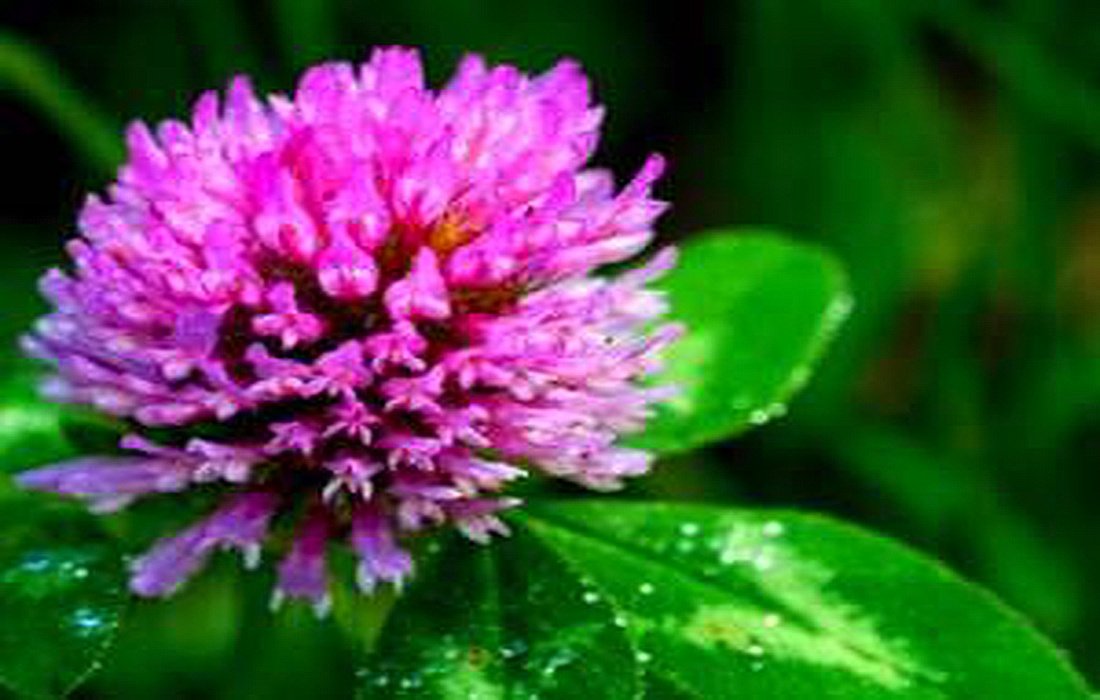Red CloverAnd its remarkable properties, especially for women
Red clover is a wild plant belonging to the legume family. Cows and other animals eat red clover. It is also used in the production of medicine to treat various diseases such as cancer, cough…Cough…respiratory problems, and skin inflammation such as…Psoriasis…and eczema.
Healthcare specialists believe that red clover acts as a diuretic (helping the body eliminate excess fluid) and an expectorant (assisting lung mucus) to improve blood circulation and aid liver cleansing.
Modern scientific tests have shown that red clover contains isoflavones, plant-based chemicals that produce estrogen-like effects in the body. Isoflavones are useful in treating many menopause-related issues…Menopause…such as hot flashes, heart health, and…osteoporosis.However, as mentioned in the health section of SelMagz……researchers have become aware of the side effects of estrogen, raising concerns about the safety of isoflavones.Introduction to the Red Clover Plant:
Red clover is a perennial plant that typically grows in meadows across Europe and Asia, and it has become native to North America. The red flowers at the ends of the stems are usually dried for therapeutic use.
Medicinal Uses and Indications of Red Clover:
Red clover is a source of many nutrients such as calcium, chromium…
magnesium……niacin, phosphorus……potassium……thiamine, and vitamin C.Red clover is a rich source of isoflavones (a chemical that acts like estrogen and is found in many plants).
The red clover plant

Treatment:
Cardiovascular Health:
Researchers believe that red clover can help protect against heart disease, but they have not found strong evidence in human studies. Red clover isoflavones increase HDL (“good cholesterol”) in women before and after menopause.
This study shows that postmenopausal women using red clover supplements have stronger blood vessels, which may help prevent heart disease.
Red clover may have properties that prevent blood clots and appears to improve blood flow.
Red Clover for Alleviating Menopausal Symptoms:
Researchers think that isoflavones, like those found in red clover, can help reduce menopausal symptoms such as…
hot flashes……and…night sweats……due to estrogen-like effects.So far, many studies have been conducted.
Red Clover for Osteoporosis:
With reduced estrogen during menopause, the risk of osteoporosis in women increases. Recent studies indicate that red clover extract may slow down the process of osteoporosis and even increase bone mineral density in pre- and post-menopausal women.
However, these are preliminary findings and more research is needed.
Red Clover Benefits for Osteoporosis
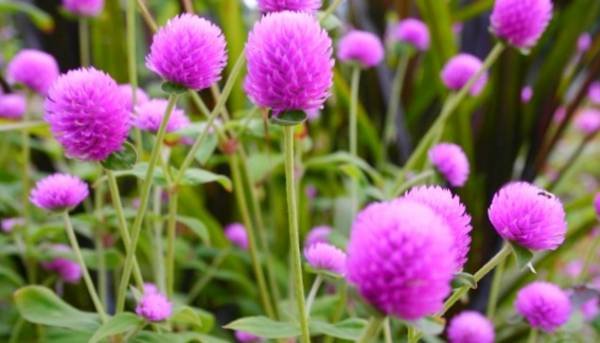
Cancer:
Based on its traditional use for cancer, researchers have begun studying the role of red clover isoflavones in preventing and treating cancer. Preliminary evidence suggests that these isoflavones may stop the growth of cancer cells. Researchers believe that red clover may help prevent some forms of cancer.
However, due to its estrogen-like effects, it may also contribute to the growth of certain cancers. Until more research is conducted, doctors cannot recommend it for cancer prevention.
Women with a history of breast cancer should not consume red clover.
Other Uses of Red Clover:
Traditionally, red clover ointments are used to treat psoriasis, eczema, and other skin issues.
Red clover is also used as a cough remedy for children.
Dosage and Management of Red Clover:
Red clover is available in various forms, including teas, tinctures, tablets, capsules, and extracts containing specific amounts of isoflavones.
Additionally, as mentioned in the health section of SelMagz, it can be prepared as an ointment for topical application (on the skin). Due to the lack of long-term studies, self-treatment should not exceed 3 to 6 months without supervision by a healthcare professional.
Consumption of Red Clover
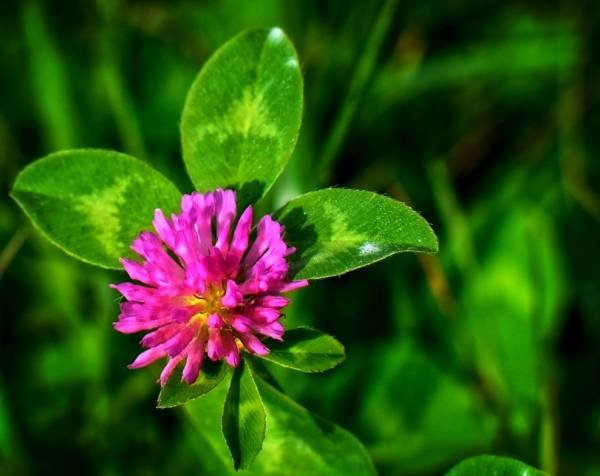
Red Clover for Children:
Red clover is traditionally used as a short-term cough remedy for children.
Products containing red clover isoflavones are very different from whole plants; however, they are not recommended for children.
Do not give red clover to a child without first discussing it with a pediatrician.
Red Clover for Adults:
The dosage can vary from person to person, but general guidelines are as follows:
Dried plant (used for tea): 1 to 2 teaspoons of dried flowers steeped in a cup of hot water for 15 to 30 minutes; drink 2 to 3 cups daily.
Plant powder (available in capsules):
40 to 160 milligrams daily, or 28 to 85 milligrams of red clover isoflavones.
Liquid extract (1:1):
1 milliliter, 3 times a day; you can add it to hot water like tea.
Properties and Benefits of Red Clover
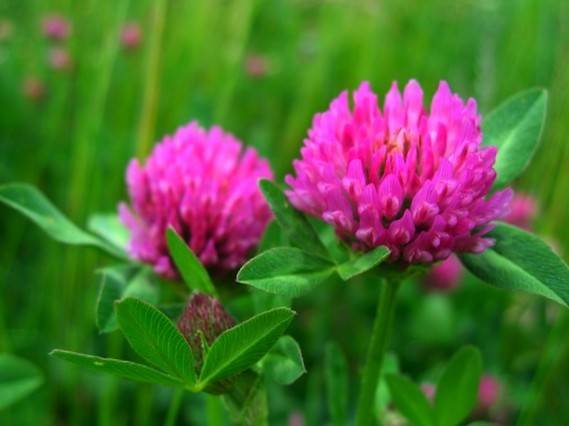
Standardized isoflavone extract of red clover:
Carefully follow the instructions related to product labels.
Topical Treatment (such as for psoriasis or eczema):
If you feel itchy, apply an infusion, liquid extract, or ointment containing 10 to 15 percent of the flower tops. Do not apply to an open wound without medical supervision.
Although some red clover isoflavones are studied for various issues, it’s important to remember that red clover extract is very different from whole plants.
In fact, they represent only a small, highly concentrated part of the whole plants.
Side Effects of Red Clover:
No serious side effects have been reported in people who consume red clover for a year. Common side effects may include…
headaches……nausea, and itching.Individuals with breast cancer should not use red clover without consulting a doctor.
Red clover may increase the risk of bleeding, especially in people taking blood-thinning medications.
Does red clover have side effects?
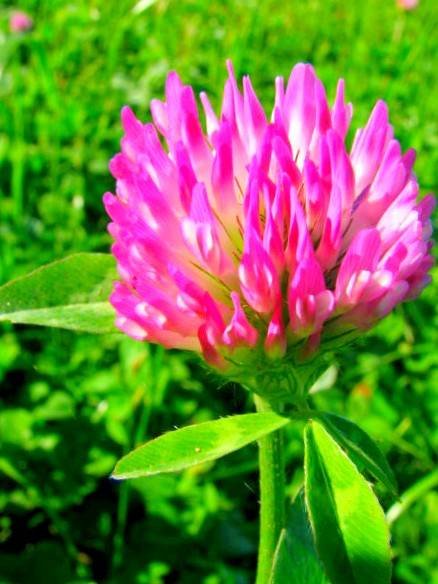
Interactions and Deficiencies:
Red clover can interfere with the body’s ability to process certain medications that are broken down by liver enzymes.
Therefore, you should consult your doctor.
Tamoxifen
:Red clover may interact with tamoxifen.
Anticoagulants (blood thinners): Red clover may enhance the effects of these drugs and increase the risk of bleeding.
Properties of Red Clover and Benefits of Red Clover for Hair



